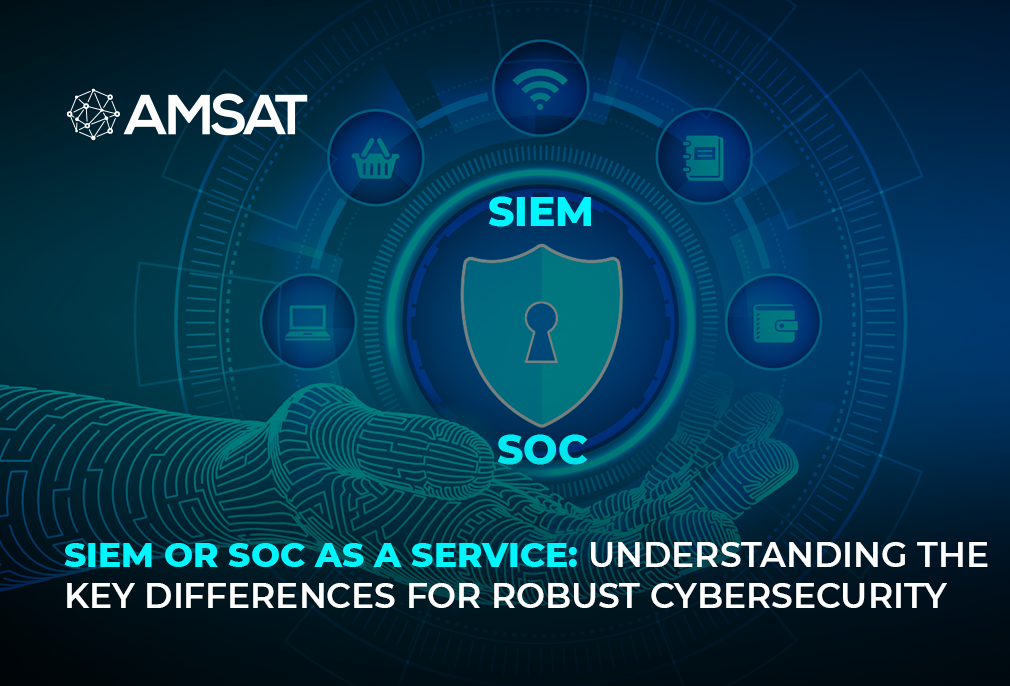Latest Blogs

By AMSAT Oct 12,2020
An insight into cyberterrorism
Cyberterrorism is the scourge facing both large and small organizations today. In fact, in the language of cybersecurity, two terms—cyberterrorism and cyberwarfare—have become the buzzwords.
What is cyberterrorism?
This is all about using the internet for nefarious objectives that seek to threaten or result in serious physical harm—even loss of life. Cyberterrorism often serves the objective to achieve political or ideological advantages through intimidation, terror and threat. The definition of cyberterrorism incorporates terror events like calculated disruption of computer networks through using numerous tools such as worms, viruses, and phishing events.
The explanation and description of cyberterrorism is highly dependent on context and prone to change. When cybercriminals leak or steal information, infiltrate the systems of régimes and conglomerates, they don’t immediately cause physical harm to a property or an individual but the disruption caused by such data breaches can be highly damaging. On the contrary, some experts believe that unlawful ways of receiving and curbing information should be considered as simple hacking rather than cyberterrorism.
How an organization can be protected against cyberterrorism
Since any organization may fall victim to cyberterrorism, it’s important that businesses—both large and small—prepare themselves to face any eventuality. In this context, you should often test your security events, perceive the vulnerabilities and mitigate them, while ensuring to update your tools, software and firewalls regularly. You need to device a disaster plan, inform everybody in your IT team to know what their roles and responsibilities are in case a crisis happens. Moreover, you should never be contingent on a single security solution, and always have a back-up plan in place.
Regardless of the disagreement over the presence of cyberwarfare, many nations including North Korea are known to conduct aggressive cyber actions against other countries.
Concerns
Cyberterrorism is getting extremely prominent on social media nowadays. Since the internet is playing a key role in all facets of human life, individuals or groups can use the privacy provided by the internet to intimidate citizens, certain groups, and states, without the looming threat of arrest, harm, or death to the attacker that being physically present would entail. Several groups use paraphernalia such as denial-of-service attack to attack and censor groups who confront them. Many people believe that cyberterrorism is a dangerous threat to countries’ economies, and fear an eruption could possibly lead to another Great Depression. Several leaders have an agreement that cyberterrorism has the highest amount of threat over other plausible attacks on U.S. soil. Although natural disasters are considered a chief threat and have known to be awe-inspiring to people and land, there is ultimately little that can be done to prevent such events from occurring. Therefore, one needs to focus more on preventive incidents that will make internet attacks difficult to implement. The Internet of Things seeks to further combine the simulated and physical worlds, which some experts see as a significant stimulus for states to use fanatical proxies in perpetuation of objectives.
Dependance on the internet is swiftly rising globally, generating a platform for international cyber terror schemes to be developed and executed as a direct threat to national security. For fanatics, cyber-based incidences have distinct advantages over physical attacks, as they can be executed remotely, covertly, and reasonably cheaply; they also do not need a heavy investment in weaponry and staff.
TAGS
- cyberterrorism
- Security Updates
- cyber terror
Recent Blogs
Ready to Get Started?
Our specialists are ready to tailor our security service solutions to fit the needs of your organization.










